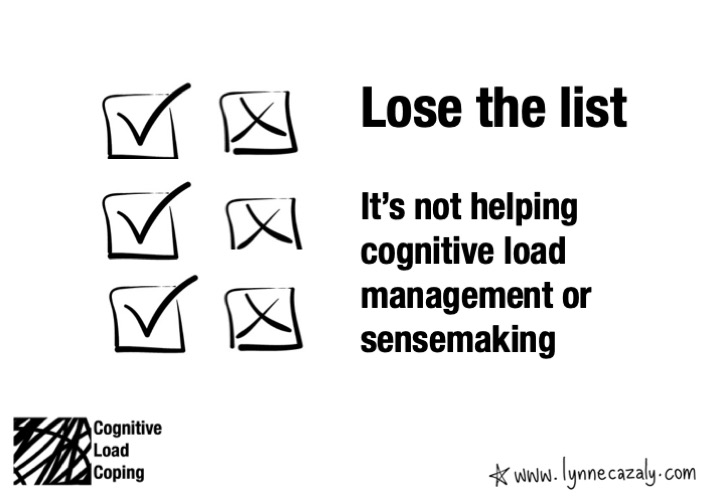We can make information overload worse
 Tuesday, September 10, 2019 at 4:13PM
Tuesday, September 10, 2019 at 4:13PM  To handle the never-ending flow of information we face, it’s useful realising that the way we currently do things could be making it harder for us to take in information with ease.
To handle the never-ending flow of information we face, it’s useful realising that the way we currently do things could be making it harder for us to take in information with ease.
We can be so wedded to the automated and habitual way we do tasks: thinking, prioritizing, decision making, listening, note taking and learning, that we’re often blinded to the benefits and potential of newer ways.
This is why some newer ways of working are known as ... new ways of working. Of course!
I see this when I'm working with people, helping them manage their cognitive load. We’re used to our preferences (and we defend them), when we’re reading a document or listening to a presentation for example, yet we struggle with information overload and its effects. The devil you know, right?
We tolerate the inefficiency and discomfort of overload. Many people wrongly believe it would be too hard to learn a new way or the benefits wouldn't be worth the effort.
But newer ways of working are revealing better, easier and more effective ways of tackling all that information.
Would you be willing to try some new techniques to handle information overload?





















